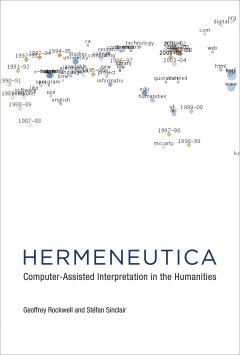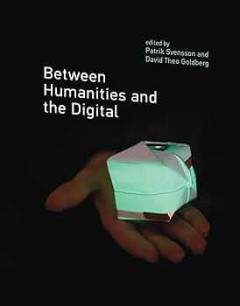Filter by

Martial Culture and Historical Martial Arts in Europe and Asia: A Multi-persp…
This open access book is the first publication to provide a comparative framework for the study of martial culture and historical martial arts in Europe and Asia, in particular in Italy and China. Due to the interdisciplinary nature of martial studies, contributors to this volume include historians, archeologists, art historians, scholars of fencing literature, metallurgists, as well as contemp…
- Edition
- 1
- ISBN/ISSN
- 978-981-19-2037-0
- Collation
- -
- Series Title
- Martial Studies
- Call Number
- XXII, 381

Martial Culture and Historical Martial Arts in Europe and Asia
This open access book is the first publication to provide a comparative framework for the study of martial culture and historical martial arts in Europe and Asia, in particular in Italy and China. Due to the interdisciplinary nature of martial studies, contributors to this volume include historians, archeologists, art historians, scholars of fencing literature, metallurgists, as well as contemp…
- Edition
- 1
- ISBN/ISSN
- 978-981-19-2037-0
- Collation
- -
- Series Title
- Martial Studies
- Call Number
- XXII, 381

Data Science and Social Research
This edited volume lays the groundwork for Social Data Science, addressing epistemological issues, methods, technologies, software and applications of data science in the social sciences. It presents data science techniques for the collection, analysis and use of both online and offline new (big) data in social research and related applications. Among others, the individual contributions cover …
- Edition
- 1
- ISBN/ISSN
- 978-3-319-55477-8
- Collation
- -
- Series Title
- Studies in Classification, Data Analysis, and Knowledge Organization
- Call Number
- IX, 300

Pirate philosophy for a digital posthumanities
How philosophers and theorists can find new models for the creation, publication, and dissemination of knowledge, challenging the received ideas of originality, authorship, and the book.OCLC-licensed vendor bibliographic record.
- Edition
- -
- ISBN/ISSN
- 9780262332217
- Collation
- 1 online resource (xiv, 248 pages).
- Series Title
- -
- Call Number
- -

Hermeneutica: Computer-Assisted Interpretation in the Humanities
"With increasing interest being shown in participatory research models, whether it be Wikipedia, World of Warcraft, participatory writing (like Montfort et al's 10 Print or Laurel et al's Design Research) or the more traditional communal research cultures of the arts collective or engineering lab, the Humanities is increasingly relying on computational tools to do the 'heavy lifting' necessary …
- Edition
- -
- ISBN/ISSN
- 9780262332064
- Collation
- 1 online resource (viii, 246 pages) :illustrations
- Series Title
- -
- Call Number
- -

Between Humanities and the Digital
"Like most academic discourses, the Digital Humanities are a conversation in flux. Some would argue that the Digital Humanities are already a well-established field, pointing to the 20-year history of Humanities Computing. Others (me) see a new breed of academic with skills in both technology and the traditional humanities (the Platform Studies and Software Studies series), while others might i…
- Edition
- -
- ISBN/ISSN
- 9780262328364
- Collation
- 1 online resource (xii, 574 pages) :illustrations
- Series Title
- -
- Call Number
- -

The Landscape of Reform: Civic Pragmatism and Environmental Thought in America
In The Landscape of Reform Ben Minteer offers a fresh and provocative reading of the intellectual foundations of American environmentalism, focusing on the work and legacy of four important conservation and planning thinkers in the first half of the twentieth century: Liberty Hyde Bailey, a forgotten figure in the Progressive conservation movement; urban and regional planning theorist Lewis Mum…
- Edition
- 1
- ISBN/ISSN
- 9780262279918
- Collation
- -
- Series Title
- -
- Call Number
- -

Game Theory and the Humanities: Bridging Two Worlds
The author shows how game theory can illuminate the rational choices made by characters in texts ranging from the Bible to Joseph Heller's 'Catch-22' and can explicate strategic questions in law, history, and philosophy.OCLC-licensed vendor bibliographic record.
- Edition
- -
- ISBN/ISSN
- 9780262295932
- Collation
- 1 online resource (xi, 319 pages) :illustrations
- Series Title
- -
- Call Number
- -

Media Art and the Urban Environment: Engendering Public Engagement with Urban…
This text formally appraises the innovative ways new media artists engage urban ecology. Highlighting the role of artists as agents of technological change, the work reviews new modes of seeing, representing and connecting within the urban setting. The book describes how technology can be exploited in order to create artworks that transcend the technology’s original purpose, thus expanding th…
- Edition
- -
- ISBN/ISSN
- 978-3-319-15152-6
- Collation
- XIV, 299
- Series Title
- Future City (FUCI, volume 5)
- Call Number
- -

Chapter 7 Wooden Shoes and Wellington Boots the Politics of footwear in Georg…
This chapter therefore makes a case for a political history of shoes, by bringing together these two rich fields. It will begin by thinking about the nature of political culture in the eighteenth century, where political virtue was evaluated in highly moral and gendered terms, and where shoes became the focus of debates about masculinity and citizenship. It will then turn its attention to c…
- Edition
- -
- ISBN/ISSN
- 9780367706616
- Collation
- -
- Series Title
- -
- Call Number
- 800
 Computer Science, Information & General Works
Computer Science, Information & General Works  Philosophy & Psychology
Philosophy & Psychology  Religion
Religion  Social Sciences
Social Sciences  Language
Language  Pure Science
Pure Science  Applied Sciences
Applied Sciences  Art & Recreation
Art & Recreation  Literature
Literature  History & Geography
History & Geography